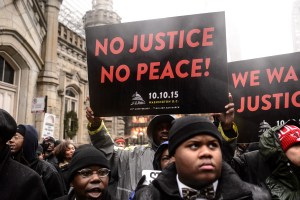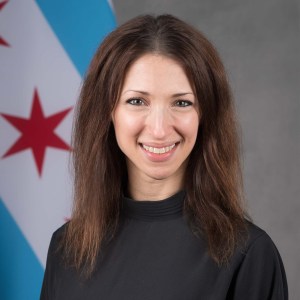

The primary online outlet of the Fraternal Order of Police, The Watch, continues to argue that any notion of a cover up is considered simply a “narrative” in which the media helps further their anti-police conspiracy.
“And once again, WBEZ Public radio reporter Chip Mitchell seems all too willing to ignore evidence of potential misconduct at the former police oversight agency, IPRA, as Mitchell pushes the narrative that three officers conspired to cover up the shooting of Laquan McDonald.”
The Watch backs their argument of denying a coverup through a multitude of ways. Primarily, their argument relies upon the FOP’s claim of the mutual interest of civil rights lawyers and ‘corrupt’ media:
“One particularly visible FOP leader is spokesman and Second Vice President Martin Preib, who has alleged that the media and civil rights lawyers falsely accuse police of misconduct. The union’s official communications have adopted this theory, accusing media outlets of nurturing a “bloodthirsty antipathy to the police.”
Claims such as these have lead to attacks via twitter condemning the work of public interest transparency organizations such as Chicago Justice Project and “good government” groups such as the Better Government Association:
BGA and CJP, two “media” outlets shilling for their activist allies, completely unwilling to address any of the evidence that undermines their 30-year mythology and furious at anyone who attempts to make them do so… https://t.co/esFMUExVwF
— The Watch (@thewatch42) July 1, 2019
Above all, the language employed by the FOP through these claims only further polarize the police from other state agencies such as the attorney general, states attorney’s office the media and the public. These claims have further led the public to be more skeptical of CPD action, leading to greater protest as in the Laquan McDonald rally.
Secondly, the FOP has come to politicize the collective police force in ardently “aligning with President Trump’s rule of law” and support for a stronger police force through pushing more constitutional leniency on “tough-on-crime law-enforcement” as well as advocating for the use of force to carry out the “core responsibility of government.”
Routinely, the FOP has used tweets from the President to support their own agenda of coverups, conspiracy and anti-police paranoia, which creates a sense of political backing, making police interaction with the media and public a red and blue issue rather than simple accountability through the courts.
This defense can be seen as merely political as President Trump’s does not understand the issues facing the city of Chicago nor the history causing them. The FOP’s support is used as merely a counter against the mayor’s safety measures to enforce stronger constitutional policing.
Plagiarism charge against Sleepy Joe Biden on his ridiculous Climate Change Plan is a big problem, but the Corrupt Media will save him. His other problem is that he is drawing flies, not people, to his Rallies. Nobody is showing up, I mean nobody. You can’t win without people!
— Donald J. Trump (@realDonaldTrump) June 5, 2019
Thirdly, the most present basis for which The Watch bases its cover-ups is through the claim that media agencies are not being held accountable for “fake news” or misleading journalism. blaming the police. Through all FOP news outlets, the FOP claim that the public’s inability to hold journalists accountable, specifically Megan Crepeau and Eric Zorn, hold the police back from doing their job and frame police as perpetrators of violence. It is a very simple solution to a growing presence of anti-police sentiment growing in the city by pointing blame instead of acknowledging misconduct.
This claim stems from the FOP’s anger at media agencies excluding evidence from coverage of police force events, leading to articles such as “In Chicago, Police Held Accountable, Not Journalists.”
“The cases of Anthony Porter, Stanley Wrice, Anthony McKinney, Madison Hobley, the Ford Heights Four…All these cases have generated evidence of corruption not within the police force, but used as a weapon in lawsuits against officers.”
Ultimately, these tactics stand as an immediate defense mechanism against anti-police sentiment both in public demonstrations and through social media. Such strong language immediately detracts from the incident or case at issue and instead presents a politicized debate between police and the people they are to protect.
Undoubtedly, these mechanisms employ a double standard to coverups such as Laquan McDonald’s in that the FOP uses these defenses while maintaining that any coverup between police officers is complete “bogus.”



